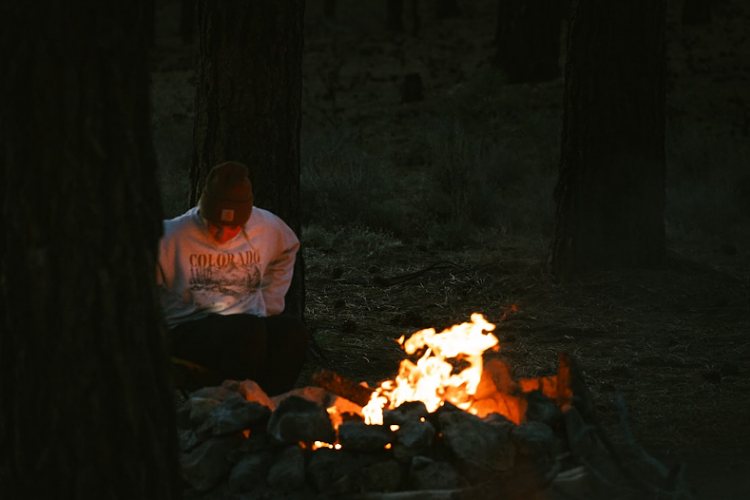 One of the most delightful outdoor pursuits is camping, which allows individuals to disconnect from their everyday schedules and re-establish a connection with the natural world. The trip can be both adventurous and tranquil, whether you’re going to a family-friendly campground, a mountain camping, or an isolated woodland. But there are risks associated with the environment, and neglecting safety measures can rapidly turn an enjoyable vacation into a stressful one.
One of the most delightful outdoor pursuits is camping, which allows individuals to disconnect from their everyday schedules and re-establish a connection with the natural world. The trip can be both adventurous and tranquil, whether you’re going to a family-friendly campground, a mountain camping, or an isolated woodland. But there are risks associated with the environment, and neglecting safety measures can rapidly turn an enjoyable vacation into a stressful one.
Table of Contents
Pay Attention to the Weather
One of the most unpredictable aspects of camping is the weather, which, if disregarded, can present serious risks. Conditions might vary significantly in a few hours due to sudden storms, intense rain, or extremely high or low temperatures. Before leaving home, always check the weather forecast. Once you’re at your campsite, keep an eye on the skies and any changes in wind or temperature, and protect your vehicle too. It’s crucial to bring layers of appropriate clothing because nighttime temperatures might drop dramatically. You can prevent discomfort and health hazards like hypothermia by using a waterproof tent, sleeping bags certified for the anticipated climate, and tarps for added protection.
Get Ready and Make Plans
Being prepared is one of the most crucial elements of camping safety. Just taking the time to organize before leaving will help you avoid a lot of problems. Examine the geography, fauna, local laws, and weather patterns of the area where you plan to camp. Knowing this enables you to prepare for potential hazards and pack appropriately. Create a list of necessary supplies, including enough food and water, a first-aid kit, one of those practical pocket knives that can come in handy in lots of different scenarios, and navigational aids like maps and compasses. Always share your plan and anticipated return date with someone you may trust, especially if you are heading to a more remote area.
Adhere to Fire Safety
Since they are utilized for cooking, heating, and establishing a comfortable ambiance, campfires are frequently the focal point of the camping experience. But if not managed properly, fire can also be one of the biggest risks. Fires should always be built in approved fire rings or pits, away from overhanging branches, dry grass, and leaves. Keep sand or water close by to completely put out a fire after you’re done, and never leave one unattended. Consider utilizing a camping stove in place of open flames during dry seasons or in places where fire is prohibited. Accidents can be avoided by teaching kids about fire safety and establishing clear boundaries around the fire.
Honor Wildlife and the Environment
Seeing wildlife in its natural environment is one of the pleasures of camping, but it’s important to keep in mind that wild animals are unpredictable and should never be approached or fed. Food should be kept safely in bear-proof canisters or airtight containers because the odor may draw in unwanted guests. Food crumbs attract animals back to your campground, so don’t leave them lying around. When interacting with animals, keep a safe distance and use binoculars or cameras for up-close views rather than being in proximity. Additionally, show your care for the environment by adhering to the “leave no trace” philosophy, which calls for packing out all rubbish, avoiding uprooting plants, and staying on authorized pathways. By following these guidelines, you not only protect yourself but also help future campers appreciate the woods’ inherent beauty.
Give Health and First Aid Priority
Even with the best preparedness, accidents and health problems can occur; therefore, first-aid equipment and expertise are crucial. Keep a fully supplied first-aid kit with bandages, painkillers, insect repellent, antiseptics, and any personal prescriptions you may need. Discover how to treat common outdoor injuries like burns, sprains, wounds, and insect bites. Another important health consideration is staying hydrated; always pack more water than you anticipate using, or carry dependable purification pills or filters. Maintaining clean wounds to avoid infection and washing your hands before eating are examples of proper hygiene. You lower the chance that minor problems will worsen during your travel by putting your health first and being ready for any medical emergencies.
Camping is a fulfilling activity that blends leisure, adventure, and a closer bond with the natural world. However, ensuring your own and others’ safety calls for both responsibility and attentiveness. You lay the groundwork for a fun and safe trip by being well-prepared, keeping an eye on the weather, practicing fire safety, showing consideration for wildlife, and putting your health first. Safety should be viewed as an integral aspect of the experience rather than a limitation. Camping can offer special experiences and a deeper understanding of the natural world without needless hazards if the proper safety measures are taken.






